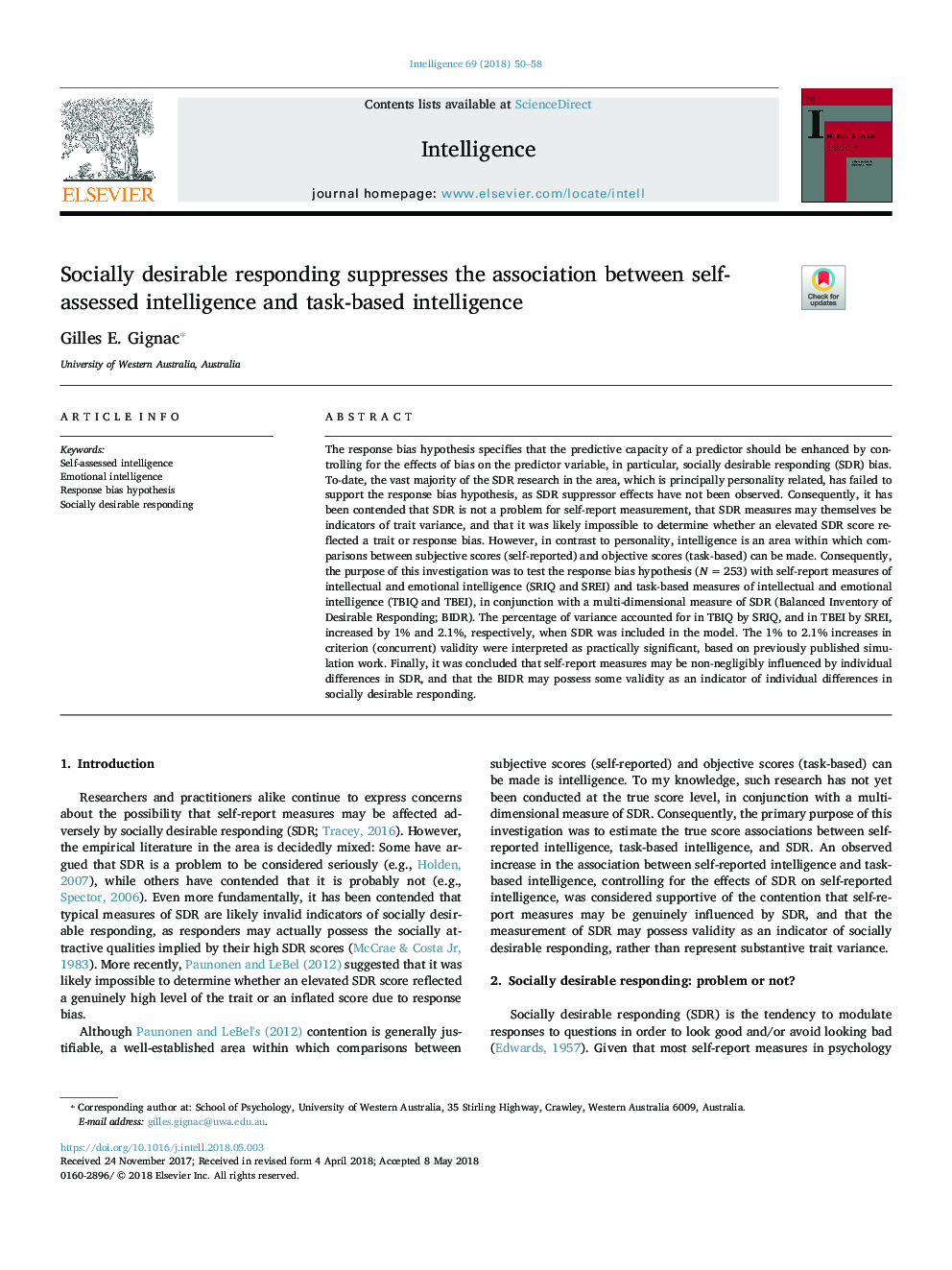| کد مقاله | کد نشریه | سال انتشار | مقاله انگلیسی | نسخه تمام متن |
|---|---|---|---|---|
| 7292704 | 1474247 | 2018 | 9 صفحه PDF | دانلود رایگان |
عنوان انگلیسی مقاله ISI
Socially desirable responding suppresses the association between self-assessed intelligence and task-based intelligence
ترجمه فارسی عنوان
پاسخ اجتماعی مطلوب ارتباط بین هوش خود ارزیابی و هوش مبتنی بر وظیفه را از بین می برد
دانلود مقاله + سفارش ترجمه
دانلود مقاله ISI انگلیسی
رایگان برای ایرانیان
کلمات کلیدی
هوش خود ارزیابی، هوش هیجانی، فرضیه تعصب پاسخ، جواب اجتماعی مطلوب،
موضوعات مرتبط
علوم انسانی و اجتماعی
روانشناسی
روانشناسی تجربی و شناختی
چکیده انگلیسی
The response bias hypothesis specifies that the predictive capacity of a predictor should be enhanced by controlling for the effects of bias on the predictor variable, in particular, socially desirable responding (SDR) bias. To-date, the vast majority of the SDR research in the area, which is principally personality related, has failed to support the response bias hypothesis, as SDR suppressor effects have not been observed. Consequently, it has been contended that SDR is not a problem for self-report measurement, that SDR measures may themselves be indicators of trait variance, and that it was likely impossible to determine whether an elevated SDR score reflected a trait or response bias. However, in contrast to personality, intelligence is an area within which comparisons between subjective scores (self-reported) and objective scores (task-based) can be made. Consequently, the purpose of this investigation was to test the response bias hypothesis (Nâ¯=â¯253) with self-report measures of intellectual and emotional intelligence (SRIQ and SREI) and task-based measures of intellectual and emotional intelligence (TBIQ and TBEI), in conjunction with a multi-dimensional measure of SDR (Balanced Inventory of Desirable Responding; BIDR). The percentage of variance accounted for in TBIQ by SRIQ, and in TBEI by SREI, increased by 1% and 2.1%, respectively, when SDR was included in the model. The 1% to 2.1% increases in criterion (concurrent) validity were interpreted as practically significant, based on previously published simulation work. Finally, it was concluded that self-report measures may be non-negligibly influenced by individual differences in SDR, and that the BIDR may possess some validity as an indicator of individual differences in socially desirable responding.
ناشر
Database: Elsevier - ScienceDirect (ساینس دایرکت)
Journal: Intelligence - Volume 69, JulyâAugust 2018, Pages 50-58
Journal: Intelligence - Volume 69, JulyâAugust 2018, Pages 50-58
نویسندگان
Gilles E. Gignac,
